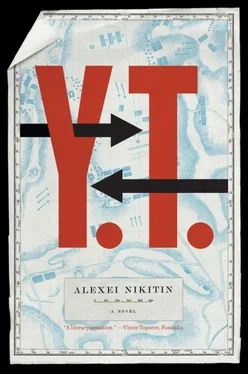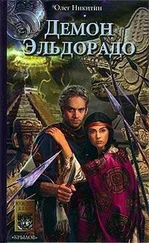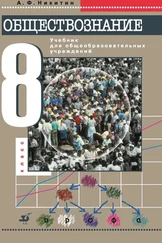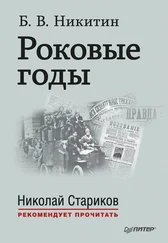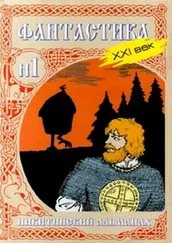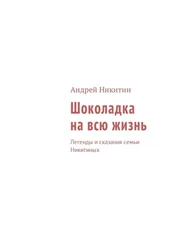Outside it was beginning to get dark. Ice was floating in the dark mud in the flooded hollows of the pavement. Along the Upper Bank a solid line of cars was crawling slowly and gloomily by. I glanced through the window of the café. Sinevusov was standing with his arm across Mephistopheles’ shoulder, saying something into his ear.
The day had disappeared. I walked around evening Podol, lazily ruminating about Mishka, Sinevusov, why the agent had wanted to meet in that particular filthy dive. A minute’s telephone conversation would have sufficed to give me the number of the department where Mishka was being held. But Sinevusov made me waste an entire day. Or maybe he just wanted to talk. The whim of an old soldier, languishing from the boredom of forced idleness.
I told Sinevusov I would go see Reingarten, but visiting hours at the hospital were surely over by now, and it would be pointless going to Frunze Street. Instead, I turned on to the first side street, banished Sinevusov from my mind and breathed deeply the raw Podol air.
It had been a long time since I’d last been here. And it just happened to be during the lilac Podol sunsets I’d once loved more than anything. They come towards late February/early March when the snow is pressed up to the curbs and hardened into black snowdrifts, and the smell of the day’s thawed earth, smoke and old rotting fences rises above the asphalt. It’s a time of cosmic solitude and metaphysical breakthroughs.
I slowly made my way along the Upper Bank to Frolov Street, occasionally casting a backwards glance at the black silhouette of Castle Hill perched carefully on the brink of the dense-mauve Kiev sky as it filled swiftly with darkness. In the intervening years nothing had changed here. Everything was the same, the street, Castle Hill, the heaviness of the raw evening sky. A savage canine howl could be heard from the direction of Schekavitsa Hill, and very close by, along Konstantine Street, the sound of automobiles at long last breaking free of the gridlock. When I reached Contract Square I stopped. The Dutch embassy was here. And the Church of the Assumption. ‘The Lay of Prince Igor’ came to mind: ‘Igor rides along the Borichev to the Church of the Mother of God of Pirogoscha. The lands are victorious, the cities rejoice.’ The lands are victorious… Show me these lands. Here was Borichev, the Church of the Mother of God that they’d finished rebuilding ten years earlier. It was a dead place. Here it seemed that everything was the same as it had ever been: the howling dogs, the old snow at the beginning of spring, the incredible colors of the evening sky. Even the smells were the same. Even Castle Hill. But the bridge to the cosmos had been destroyed. It was gone. There was no cosmos. No metaphysics.
I moved on. People were filing out of the church. At the entrance they turned back and crossed themselves, then went on their way quickly and silently. Here a woman came out, then another two women, then another. The next person to emerge was Associate Professor Nedremailo. I recognized him instantly, as if I’d been preparing for this meeting for the last twenty years. But he hadn’t been, so without even noticing me he quickly stepped past, shielding his face with the collar of his coat.
He walked quickly, limping slightly and shivering as if it wasn’t the usual freezing temperatures but a full-blown minus twenty-five. Evidently the professor had got thoroughly chilled inside the damp church. After the metro had been built in Podol the cellars of the surrounding houses began to flood in the spring. Greetings from the rivers Kiyanka and Glybochytsa, buried underground and in history.
Nedremailo headed for the metro. I followed him.
Even in 1984 we had no doubt that the whole thing—the searches, the arrests and what followed—had been cooked up by Nedremailo. First of all, the entire department knew the professor was an informer. How we knew this I’ve never found out, but everyone did. Second, it was Nedremailo who took the folder of papers from Sashka Korostishevski at an electrodes seminar. Korostishevski was keeping drafts in the folder: the draft ultimatum, estimates of the strength of the armed forces, sketches of campaign maps and lots of other working papers necessary for the administration of a great power such as the Holy Roman Empire. Having quickly solved an electrodynamics problem Emperor Karl XX was preparing for battle. At the time we were doing all we could to ready ourselves for war: calling men to arms, conducting maneuvers, riveting together tanks and howitzers in our factories. But not in Nedremailo’s seminar. Who wanted to tangle with Nedremailo? Not Korostishevski. But it came to that. His folder was taken away, words were exchanged and the Holy Roman Empire was deprived of important documents. Who could have known this wasn’t merely the beginning of our story but a preface? A prologue.
Then the bell rang and the seminar was over. Nedremailo left the classroom and headed down the corridor towards the stairwell, Korostishevski’s folder tucked under his arm. We followed. We watched him carrying the folder; in his other hand the professor gripped a heavy briefcase. And as we watched we panicked and talked rubbish, constructing impossible plans, calculating how we could get the folder back. But Nedremailo quickly drew away from us, limping and slightly stooped.
He was walking just as quickly now. Past the tram stop, the grandmothers hawking sunflower seeds, the underground passage leading to the metro. Nedremailo mounted the steps to the Home Cooking Café. I entered the café right behind him.
What do associate professors eat for dinner? Borscht, dumplings with potato and mushrooms, sour-cucumber-and-sauerkraut salad. Bread. Beer. I confined myself to beer.
‘Is this place free?’
Nedremailo raised his tired eyes to me. Then he looked pointedly around the half-empty dining room. I acted like I didn’t understand. I said, ‘Thank you,’ and sat down across from him. Just over an hour ago Sinevusov and I had been sitting in exactly the same way. Nedremailo shrugged and began eating his borscht.
When the professor turned to his dumplings I asked, ‘Do you still lecture on electrodynamics in the radiophysics department?’
‘When did you graduate?’ He studied me but couldn’t remember who I was.
‘I didn’t graduate. We were expelled in 1984 for truancy. Perhaps you recall…’
‘No,’ Nedremailo said, and jerked his shoulder in irritation.
‘…Korostishevski, Reingarten, Kurochkin…’
He certainly remembered Kurochkin.
‘Ah yes, now I remember. That was an unpleasant business.’ He rotated his fork, dumpling impaled at one end. ‘But why truancy? As I recall, you were expelled on completely different grounds.’
‘If you remember that much I’d like to ask you a favor. Could you give me the folder you took away from Korostishevski?’
‘It’s been many, many years since I’ve had that folder.’ Nedremailo waved the fork and dumpling.
‘Eat the dumpling,’ I said. ‘It will get cold. Or fly off your fork. And I’d hate it to end up in my beer. So where’s the folder?’
‘They took it away at the very first interrogation.’
‘Interrogation? I always thought your dealings with the authorities went by another name.’
‘Look here, what’s your…?’
‘Davidov.’
‘Right, Davidov. Look here, I’m not about to justify myself to you. You are not my judge. Is that clear?’
‘It certainly is.’
‘Then stop interrupting,’ Nedremailo said quietly. ‘I don’t have to talk to you at all. Besides, it all happened a long time ago. Although I can understand why you’re interested…’
‘I certainly am,’ I couldn’t help saying.
‘And I want you to know that I had nothing to do with that business. And I have nothing to do with it now.’
Читать дальше
